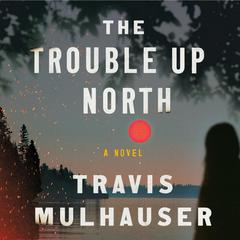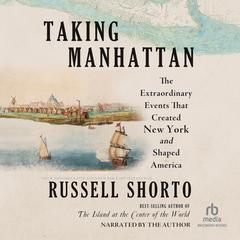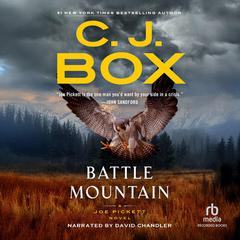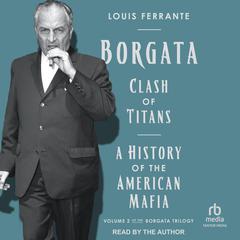 Play Audiobook Sample
Play Audiobook Sample
L.A. Noir: The Struggle for the Soul of America's Most Seductive City Audiobook
 Play Audiobook Sample
Play Audiobook Sample
Quick Stats About this Audiobook
Total Audiobook Chapters:
Longest Chapter Length:
Shortest Chapter Length:
Average Chapter Length:
Audiobooks by this Author:
Publisher Description
Midcentury Los Angeles. A city sold to the world as "the white spot of America," a land of sunshine and orange groves, wholesome Midwestern values and Hollywood stars, protected by the world's most famous police force, the Dragnet-era LAPD. Behind this public image lies a hidden world of "pleasure girls" and crooked cops, ruthless newspaper tycoons, corrupt politicians, and East Coast gangsters on the make. Into this underworld came two men—one L.A.'s most notorious gangster, the other its most famous police chief—each prepared to battle the other for the soul of the city.
Former street thug turned featherweight boxer Mickey Cohen left the ring for the rackets, first as mobster Benjamin "Bugsy" Siegel's enforcer, then as his protégé. A fastidious dresser and unrepentant killer, the diminutive Cohen was Hollywood's favorite gangster—and L.A.'s preeminent underworld boss. Frank Sinatra, Robert Mitchum, and Sammy Davis Jr., palled around with him; TV journalist Mike Wallace wanted his stories; evangelist Billy Graham sought his soul.
William H. Parker was the proud son of a pioneering law-enforcement family from the fabled frontier town of Deadwood. As a rookie patrolman in the Roaring Twenties, he discovered that L.A. was ruled by a shadowy "Combination"—a triumvirate of tycoons, politicians, and underworld figures where alliances were shifting, loyalties uncertain, and politics were practiced with shotguns and dynamite. Parker's life mission became to topple it—and to create a police force that would never answer to elected officials again.
These two men, one morally unflinching, the other unflinchingly immoral, would soon come head-to-head in a struggle to control the city—a struggle that echoes unforgettably through the fiction of Raymond Chandler and movies such as The Big Sleep, Chinatown, and L.A. Confidential.
For more than three decades, from Prohibition through the Watts Riots, the battle between the underworld and the police played out amid the nightclubs of the Sunset Strip and the mansions of Beverly Hills, from the gritty streets of Boyle Heights to the manicured lawns of Brentwood, intersecting in the process with the agendas and ambitions of J. Edgar Hoover, Robert F. Kennedy, and Malcolm X. The outcome of this decades-long entanglement shaped modern American policing—for better and for worse—and helped create the Los Angeles we know today.
A fascinating examination of Los Angeles's underbelly, the Mob, and America's most admired—and reviled—police department, L.A. Noir is an enlightening, entertaining, and richly detailed narrative about the city originally known as El Pueblo de Nuestra Señora la Reina de los Angeles, "The Town of Our Lady the Queen of the Angels."
Download and start listening now!
"I started reading this BEFORE I found out it was going to be turned into a TV series. For that, I feel a great sense of accomplishment. Also, it was a fascinating read. I love films noir (and I live in L.A.), so this was right up my alley. Buntin did some great research and the sources and notes in the back are helpful and well-referenced."
— Ivan (4 out of 5 stars)
Quotes
-
Important and wonderfully enjoyable.
— Los Angeles Times
L.A. Noir Listener Reviews
-
" It took me quite awhile to understand what was going on in this history. Too many names to follow - a chart on my bookmark may have helped. Once I got the point I really enjoyed all of the stories. Interesting history of the Hollywood names and the Kennedys. Enjoyable read in the end. "
— Meleya, 2/14/2014 -
" Thought it was disappointing. A rather dry book. While it was an interesting story on how the LAPD evolved from a very corrupt organization based on the leadership of William Parker. What I didn't think worked was trying to establish Mickey Cohen as an antagonist, which felt like a stretch. "
— Ron, 2/11/2014 -
" An absorbing, sharply written and extremely well researched pop history. I feel like, even though I've already lived in the area for several years, I now understand the city much better just from having read this book. "
— Jermajesty, 1/18/2014 -
" The stories of both men (William Parker and Mickey Cohen) are fascinating, however they seemed much more entertaining and interesting then the manner in which the author told them. Plus the book suggests a struggle between the two which never really came to light and seemed to be a stretch at times. Overall an interesting book, but a dry one that didn't live up to the expectations I had for it. "
— Mike, 12/28/2013 -
" This is a pretty interesting read and showcases the true situation in LA in the early half of the century. The author describes a constant world of corruption and shifting alliances of organized crime, police, politicians, and industrialists. Also, the work can read as real life LA Confidential "
— Matt, 12/27/2013 -
" This book is not what it purports to be--"The Struggle . . ." It is most about LA Police Chief Parker and a bit of info on Mickey Cohn. "
— Rod, 12/24/2013 -
" Great story, one-stroke above par writer. I give it 7 out of 10 unwarrented wiretaps. "
— TJ, 12/24/2013 -
" I am still deliciously drunk on this clever history. Mickey Cohen, Bugsy Siegel, the LAPD's legacy of corruption and bruteness, old-time movie stars, bootleggers and gamblers--what's not to love? Great classic gangster speak, too "
— Heather, 10/8/2013 -
" Fascinating book...especially if you grew up on Los Angeles. Reads easily, like a novel, but is non-fiction. It's basically the story of L.A. in the era of Chief Bill Parker and Mickey Cohen. I found myself constantly saying "I didn't know that!" "
— Susan, 7/25/2013 -
" A very worthy read. I can not improve on Michael Connelly's quote: "Fascinating... Flat-out entertaining." Covers almost a century of L.A. criminal and police history, from pre-Prohibition to post-Rodney King, with even a surprise mention of Hot Springs, AR. "
— Ray, 5/16/2013 -
" Liked it, didn't love it. Cohen and Parker weren't really tied together that well, but there were some interesting stories. I'm probably at fault -- I thought it would contain more "film noire"-like stories. "
— Joel, 1/14/2013
About Kirby Heyborne
Kirby Heyborne is a musician, actor, and professional narrator. Noted for his work in teen and juvenile audio, he has garnered over twenty Earphones Awards. His audiobook credits include Jesse Kellerman’s The Genius, Cory Doctorow’s Little Brother, and George R. R. Martin’s Selections from Dreamsongs.






















